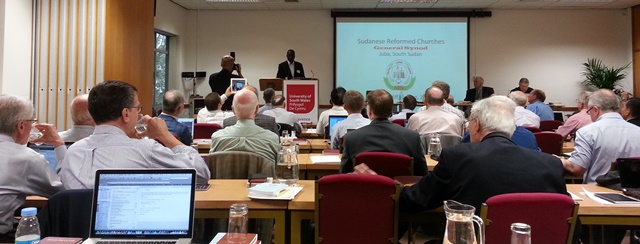The petition calls upon the Scottish government to amend the Scottish Education Act 1980 by making Religious Observance (RO) in public schools an "Opt-In" choice rather than an "Opt-Out" one as currently is the case. This would mean that instead of parents who do not wish their children to be involved in RO choosing to opt-out, parents who do wish their children to attend RO must specify their opt-in choice when offered to them by their school. In other words the present "default" position of being included unless you opt out would be changed to being excluded unless you opt in.
First of all, the petitioner claims that one of the main reason for bringing this petition is that the present system is not working and that in looking at numerous (he does not say how many) school handbooks he has discovered that they often (he does not state how often) make no mention of the right to opt out. Further research, he says, has revealed that only 20% of parents (he does not say how many he asked) say the school informed them of their right to opt out. This, he claims, makes the opt out system systematically defective.
Well, even if these figures are accurate (and there is no way for us to check them - but more on checking statistics later!) this is hardly a basis for turning the whole system on its head. It's not a problem with the substance of the system; it's a lack of communication. It ought to be fairly simple to fix this, even if it's as extensive as is claimed, with little expenditure or extra administrative burdens on schools. To change the default position, however, would impose a considerable, additional burden on schools, as is stated clearly in the response to the petition from the Association of Head Teachers and Deputies Scotland.
In addition, the change proposed would not guarantee any greater efficiency in informing parents of their rights, nor would it provide a better basis for parental understanding of the detailed content of RO as the petitioner claims. Indeed, with an increase in the required administration the likelihood is that the information would be even less efficiently communicated!
Second, the petitioner tells us that there is a need for change given that the decline in religious profession in Scotland has dropped from 65% expressing affiliation to Christianity in 2001, to 57% in 2008. This, we are told, is mainly due to falling allegiance to the Church of Scotland (down from 42% to 35%), and most of the school chaplains happen to be Church of Scotland ministers. The petitioner then complains that children who do not opt out of RO are worshipping under the aegis of a Church whose tenets are followed by only one third of the population. He then asks, "are we to assume that in future years Scottish children will have a religious viewpoint imposed on them that is representative of a tiny minority of the population?"
What are we to make of this? Well, for a start, if any parent objects to their children "worshipping under the aegis of a Church whose tenets are followed by only one third of the population", they have the option of withdrawing them! And, although I was never any good at maths, I make it that 57% affiliation to Christianity is still a majority! The petition states that Secular Scotland has "over 500 members". That's 0.01% of Scotland's population! It doesn't take much effort to conclude that wherever the drift away from Christianity has headed it's not been to Secular Scotland! Let me then turn his question around in a way that exposes the audacity and aim of the secularist thinking behind this petition - "Are we to assume that in future years Scottish children will have a religious viewpoint of historic significance denied them through the influence of a tiny minority of the population?"
Oh, and while we're on the matter of statistics, I took note of the fact that 1,516 signatures had been appended to the petition online. On examination I counted 436 of these (that's 29%) who stated other than "Scotland" as their country (of residence I presume). The places mentioned included England, USA, Belarus, Wales, Ireland, New Zealand, Australia, Canada, Romania, France Spain and United Kingdom (I know Scotland is still part of it but if living in Scotland why not specify "Scotland" like the 1080 who did?). Now some of these good people may well be Scots, but I doubt if they all send their kids to Scottish schools, so why should their names be included in support of proposed changes in SCOTTISH schools! Because 1,516, while not an impressive number, looks 29% better than 1080 perhaps?
Third, the petition quotes from the February 2005 Guidance Circular (8), in which the Scottish Executive endorsed the findings of the Religious Observance Review Group, set up after an HMIE report. The report stated, "Where the school, whether denominational or non-denominational, is continuous with a faith community, that community's faith in the 'focus of worship', may be assumed and worship may be considered to be appropriate as part of the formal activity of the school. Where, as in most non-denominational schools, there is a diversity of beliefs and practices, the review group believed that the appropriate context for an organised act of worship is within the informal curriculum as part of the range of activities offered for example by religions, groups, chaplains and other religious leaders.”
The petitioner concludes from this, that "Given the demographic described above, schools in Scotland cannot now be reasonably said to be continuous with faith communities since no significant faith community exists....Since schools are no longer continuous with faith communities, the current basis for RO provision needs to be urgently reformed."
Fourth, the petition complains that secularists are really hard done by. The religious lot have more resources than any secularist who attempts to challenge the present order (although we are not told how this is the case). And the religious opponents of secularists are "well mobilised, informed and canny." Well, I'm pleased that Secular Scotland give us some praise! At least one third of that description may even apply to Secular Scotland themselves! Ms Veronica Wikman, of Edinburgh City Council, the petition tells us, raised an online petition calling for the removal of RO altogether. But "the religious mobilised numbers, in a counter petition, well in excess of Ms Wikman's". What an unjust system we live in when religious people are allowed to have so many more names for a counter-petition! And I thought we lived in a democracy!
Is Secular Scotland's reasoning not able to cope with the possibility that Ms Wikman's failure to stimulate support for her petition may have had something to do with most people not being in favour of it, so didn't want to sign it? Why complain about so few supporting her and so many supporting a counter-petition? It's what you should expect, when you compare 0.01% with 57%!
Fifth, the petition concludes by claiming that "The data shows that this country can no longer be reasonably considered a Christian country and to continue to do so flies in the face of Scotland's position as a leading proponent of equality and diversity. Privileged default access by churches to a nation's children without a parent's express permission is deeply unfair and illogical and may represent strong potential for legal challenge either nationally or in Europe at the ECHR."
Okay, we maybe are not a Christian country any more, if we ever were one. But Secular Scotland has produced clear evidence that we are not a secularist country either! Raising the issue of equality and diversity coupled with the spectre of possible litigation is a predictable but ineffective argument. I have no problem with equality, if that means according equal liberty to all beliefs and to those who say they have none at all. Nor do I have objections to diversity, which adds richness to any culture. Retaining the current default for RO will not increase inequality nor reduce diversity. But there is a good whiff of totalitarianism about the idea that the secularist 0.01% of Scotland's people can set the terms governing religious observance in Scottish schools when 57% of its people are affiliated to Christianity.
And that's really what all this is about - secularism will not rest until every last vestige of Christianity is excised from our national consciousness and practice. Peter Hitchens in the concluding words of his splendid book "The Rage Against God" claims persuasively that societies in history which sought to eradicate God from the lives of their people, in the name of reason, science and liberty, succeeded only too well in showing that,
“good societies need God to survive…and when you have murdered Him, starved Him, silenced Him, denied Him to the children and erased his festivals and his memory, you have a gap which cannot indefinitely be filled by any human, nor anything made by human hands. Must we discover this all over again? I fear so. A new and intolerant utopianism seeks to drive out the remaining traces of Christianity from the laws and constitutions of Europe and North America….The overthrow of Christian education is a real possibility in our generation. The removal of Christianity from public ceremonies is almost complete. Expressions of Christian opinion or prayer in public premises can be punished in Britain under new codes which enjoin a post-Christian code of ‘equality and diversity’ on all public servants. Secularists are equating the teaching of religion with child abuse and laying the foundations for it to be restricted by law....The Rage against God is loose, and is preparing to strip the remaining altars when it is strong enough to do so" (The Rage Against God, Peter Hitchens, Contiuum International Publishing Group, 2010, page 158).




















.jpg)



.jpg)
.jpg)

